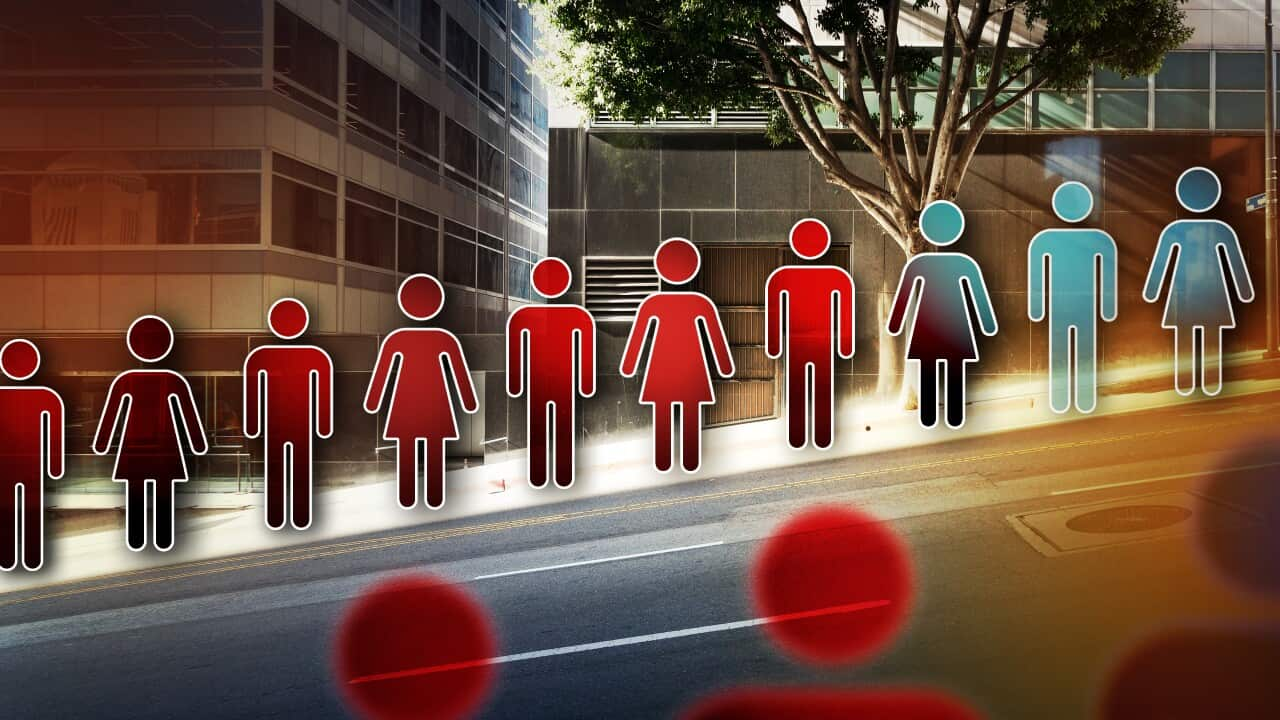For years, Melbourne-based couple Ameena Payne and her partner Steven McLean wrestled with the idea of having children.
Their hesitancy is fuelled by the uncertainty around what kind of world the next generation will inherit.
“Fires and, you know, increased droughts and the floods that we're hearing about, as well as economic crises, it's all really impacted our decision about whether we want to bear children of our own,” Ms Payne, 33, says.
, released in November by the Bureau of Meteorology and CSIRO, found extreme weather events are getting worse across Australia. The country's climate has warmed on average by 1.47C since national records began in 1910 and sea levels continue to rise.
Increasing levels of greenhouse gases in the atmosphere are being caused mostly by the burning of fossil fuels. These gases trap the Sun's heat and cause Earth's temperature to rise.
Ultimately the couple, who have been together for six years, have decided not to become biological parents.

Ameena Payne and her partner Steven McLean wrestled with the idea of having children before deciding against it. Source: Supplied
“I'm an aunt, I love that role. I’m also a mentor and Steven is involved in the community as well.
“There's so many different ways that we can be a parent or caring figure for children that are more in alignment with what we see are the impending circumstances of the world today.”

Ameena Payne says she gets a lot of satisfaction from being an aunt. Source: SBS News
“A lot of my friends have taken a similar position. We've definitely all had these discussions, over the course of the past three years,” she says.
“What I've noticed with my friendship circle is that … we're really taking family planning seriously. [It’s] not just about, you know, financially are we ready? But also, can the world sustain more children?”
“There are already so many children as well that need homes ... is it necessary for us?” Ms Payne says.
“I would say that the biggest factor is that uncertainty of the future.”
Dr Carla Pascoe Leahy, a historian of motherhood, childhood and family from the University of Tasmania, says a growing number of women across Australia are asking that very question.
“We began to notice more and more women, particularly young women, saying that their concerns about climate change were starting to make them question whether they should be having children.”
It's the reason she and a team of researchers launched a first-of-its-kind study into how climate change is influencing reproductive decisions.

Ameena Payne and her partner have chosen not to have children. Source: Supplied / Ameena Payne
“What was really interesting was when we put out our call for participants on social media … we were flooded with responses, it was as though we touched a nerve,” Dr Pascoe Leahy says.
Dr Pascoe Leahy says so far, the team has conducted extensive interviews with 10 women across Australia, from capital cities to regional hubs and from a range of different cultural backgrounds.
“Many of them feel a deep yearning to have children and become a mother. But at the same time, they feel very unsure and ambivalent about what kind of future their potential children could have.”
The study is still underway, with the findings due to be published in 2023.
Australian Bureau of Statistics (ABS) figures show more than 294,369 births were registered in Australia in 2020 resulting in a record-low fertility rate of 1.58 babies per woman.
The country has since experienced a post-COVID baby boom, with data released by the Federal Government this week showing the fertility rate has now risen to 1.66.

Source: SBS News
But ABS demography director Emily Walter says there has still been an overall decline in the birthrate over the past decade.
“The last peak we saw was in 2008 at 2.02 babies per woman and since then it has, with fluctuations, been on that decline.”
Dr Pascoe Leahy is also exploring how climate disasters are affecting women who are already mothers.
“Our is finding that climate change is already affecting Australian mothers in really profound ways.
“As disasters increase, mothers are really spending a lot of time thinking very carefully about how they can protect their family in the 21st century. Things like where they should live and create a safe family home, and how to prepare for future disasters.”
That study, still underway, is focusing on women in the Gippsland region of Victoria, an area hard-hit by disasters, most notably a series of major bushfires over the past decade.
Primary school teacher Jane Sultana, a mother of two teenage sons from the region, has lived through them all. She says it's affected the way she raises her children.

Jane Sultana says climate change has affected the way her family approaches holidays. Source: Supplied
“We've built our home as energy-efficient as possible. We try to shop, reducing our impact on the environment by choosing less-packaged foods.
“I do really fear for the future of my children. What is climate change going to do to the earth and how is it going to impact their future?”
Dr Pascoe Leahy says she hopes the research will lead to better support services to help families cope with the climate crisis.
The Albanese government's climate bill for Australia to reach net zero emissions by 2050 passed parliament in September and included an emissions reduction target of 43 per cent by 2030.
Scientists say Australia should instead aim for about 74 per cent.
Minister for Climate Change and Energy Chris Bowen said in December: "There are some who call for more. I understand the sentiment and, of course, as we have said repeatedly, we see the 43 per cent as a floor not a ceiling."
Treasurer Jim Chalmers welcomed the recent increase in Australia's fertility rate, saying in a statement this week: “It's been clear to us that when you've got an ageing population, the absolute best thing you can get is a higher fertility rate”.
Would you like to share your story with SBS News? Email














